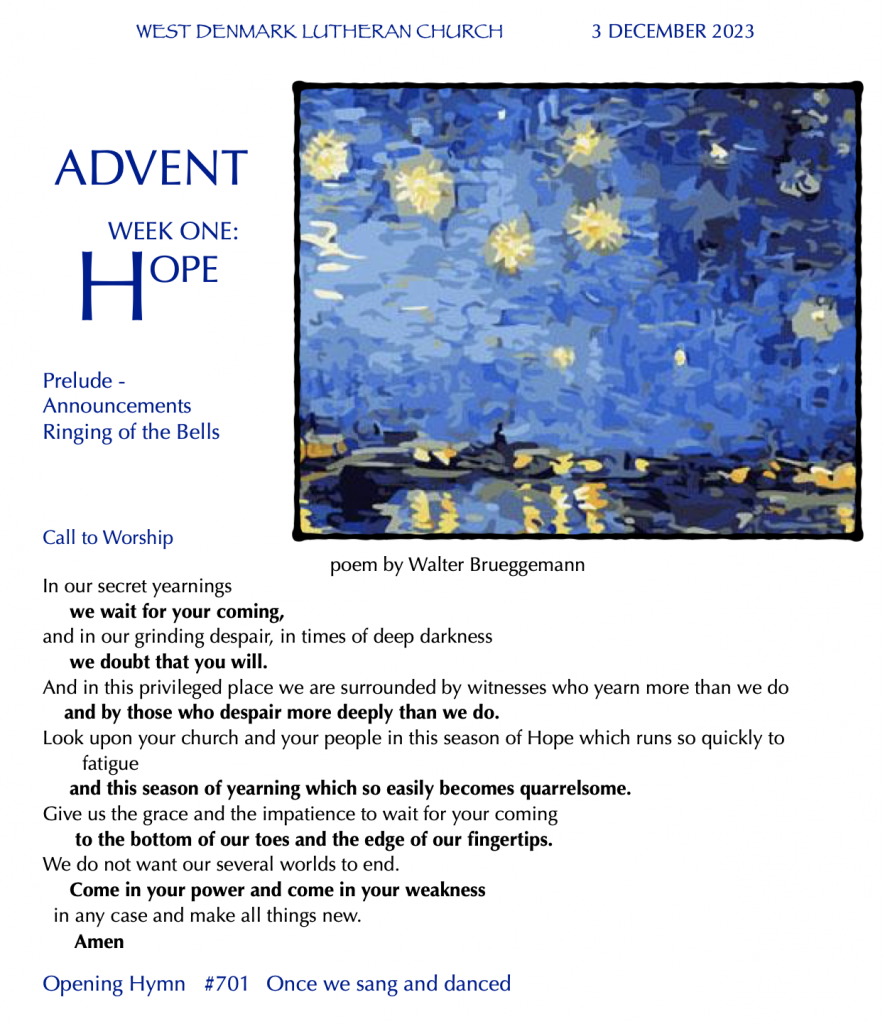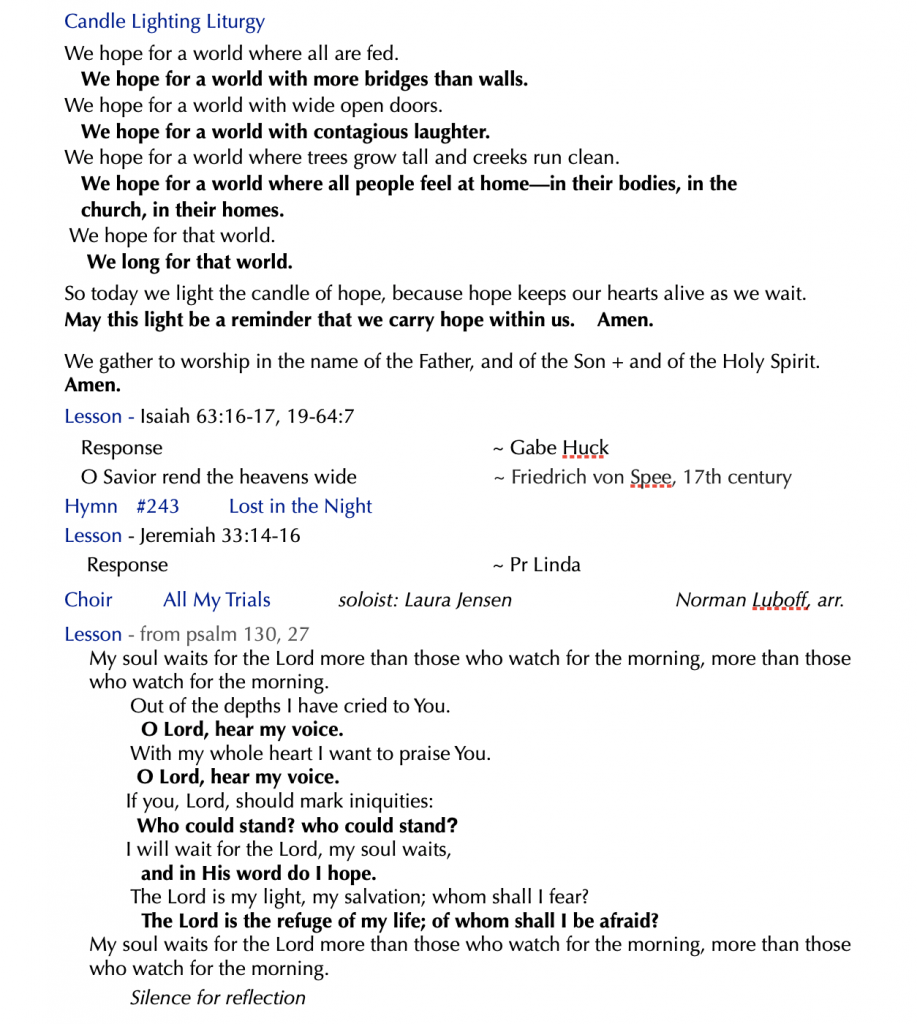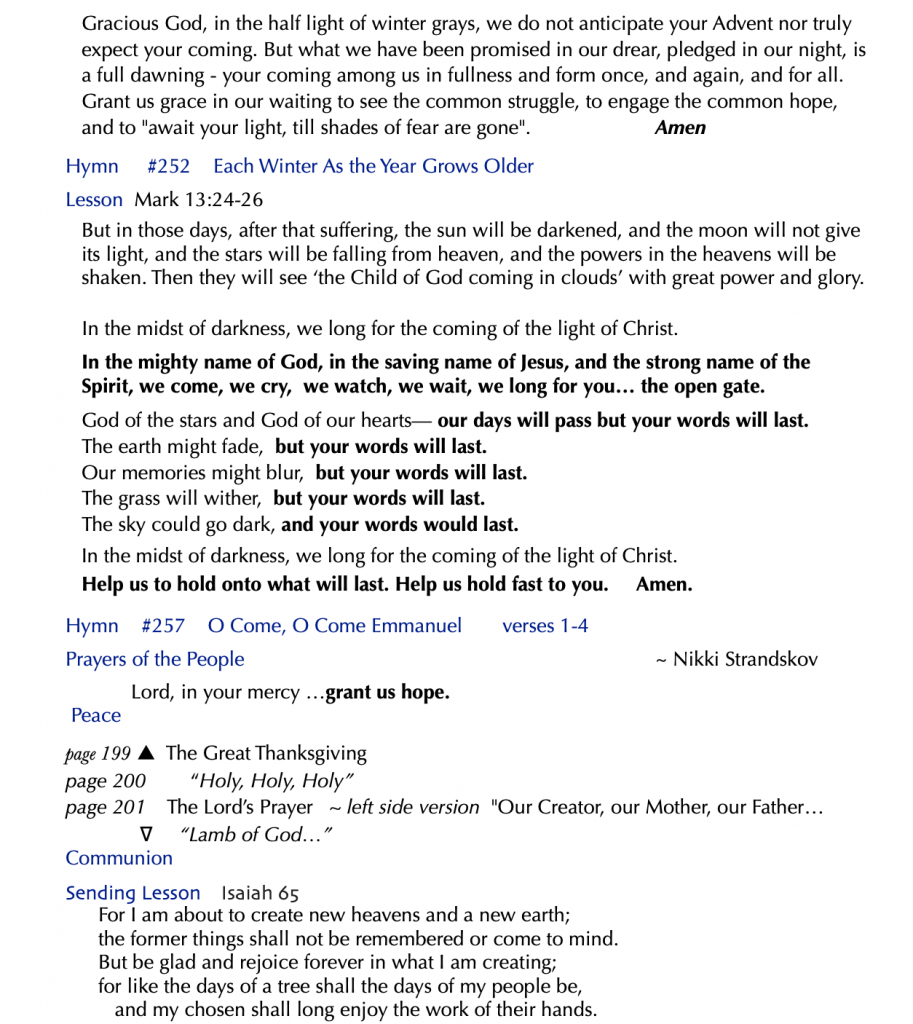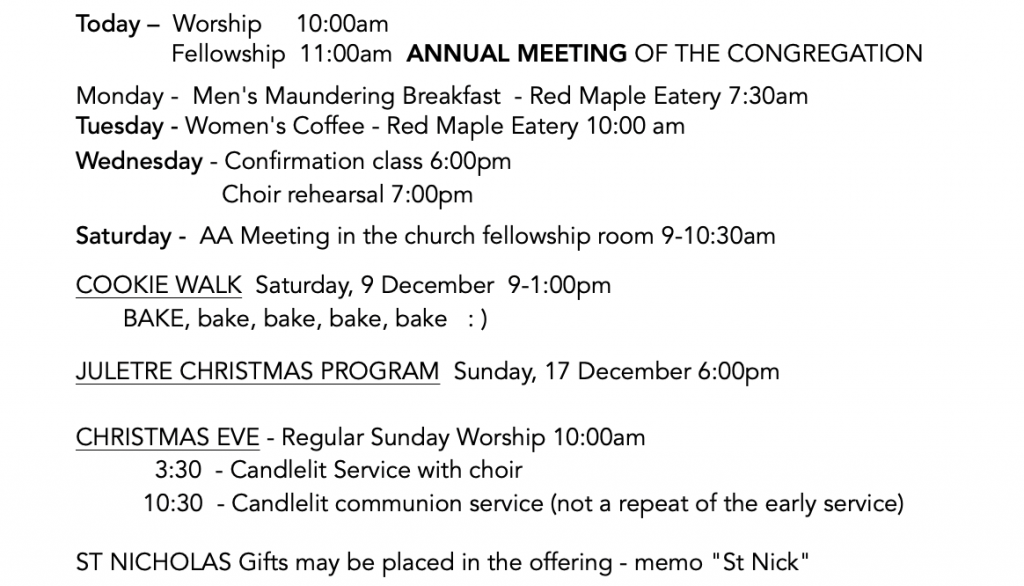



Isaiah is another prophet who cried to the Lord for return and saving mercy as first Israel and then Judah were devoured by the neighboring powers. Like Jeremiah, he calls his people to task, but relies on God’s ability to change, not his people’s.
LESSON – Isaiah 63:16-17,19-64:8
You, O Lord, are our father;
our Redeemer from of old is your name.
17 Why, O Lord, do you make us stray from your ways
and harden our heart, so that we do not fear you?
Turn back for the sake of your servants,
for the sake of the tribes that are your heritage.
O that you would tear open the heavens and come down,
so that the mountains would quake at your presence—
2 as when fire kindles brushwood
and the fire causes water to boil—
to make your name known to your adversaries,
so that the nations might tremble at your presence!
3 When you did awesome deeds that we did not expect,
you came down, the mountains quaked at your presence.
4 From ages past no one has heard,
no ear has perceived,
no eye has seen any God besides you,
who works for those who wait for him.
5 You meet those who gladly do right,
those who remember you in your ways.
But you were angry, and we sinned;
because you hid yourself we transgressed.
6 We have all become like one who is unclean,
and all our righteous deeds are like a filthy cloth.
We all fade like a leaf,
and our iniquities, like the wind, take us away.
7 There is no one who calls on your name,
or attempts to take hold of you;
for you have hidden your face from us,
and have delivered us into the hand of our iniquity.
8 Yet, O Lord, you are our Father;
we are the clay, and you are our potter;
we are all the work of your hand.
In the midst of the prophet’s judgment and gloom come a cluster of promises. They glimmer with visions of hope, comfort and restoration. These few chapters of Jeremiah proclaim that after the judgment of exile is over, God will indeed bring the people back to the land of Judah and restore them as a new and faithful people.
LESSON Jeremiah chapter 33, the book of consolation:
14 The days are surely coming, says the Lord, when I will fulfill the promise I made to the house of Israel and the house of Judah. 15 In those days and at that time I will cause a righteous Branch to spring up for David; and he shall execute justice and righteousness in the land.
16 In those days Judah will be saved and Jerusalem will live in safety. And this is the name by which it will be called: “The Lord is our righteousness.”
Even before Thanksgiving dishes are washed and put away, Christmas is in full swing. Black Friday, Small Business Saturday and tomorrow’s Cyber Monday surround and overwhelm the first Sunday of Advent like Assyria, Babylon and Egypt overwhelmed and oppressed ancient Israel.
And from here it’s a rush to Christmas day and after-Christmas sales. God’s word of objection to the world’s will and way of power, commerce and consumption is seriously muted, made quite irrelevant to the bottom line. We’ve got too much to do in preparation for Christmas, too much at stake in this holiday, to pay attention to the coming of God in Christ. The irony of that will gradually sink in.
The four weeks of preparation for the Advent of that Word are crowded with parties, shopping, cookie baking, meal planning, over indulging, over buying. It’s a bit discouraging to be an Advent people: to feel the pull of Christmas wonder and fun and holy joy, and yet hold it back, waiting, letting the longing and self-reflection have it’s day. We might recognize and appreciate the once and future sense of Christ’s coming, but even so, we get swept along in the cultural stampede of 20% off sales, this day only.
For some reason, Advent is an unexploited gem. More than a holiday or festival, it is a season – a short season for those of us with short attention spans – just four weeks. I guess wreath and candle sales are the commercial side of Advent, but that’s not much. It’s colors are blues – midnight blue so dark it’s almost black, then gradually lightening blues, brightening to pink and palest blue on the horizon, then gold as the sun rises on Christmas morn.
It’s appropriate that Advent begins in the dark. That is where prophecy finds us. “Sorrowing wand’rers in darkness yet dwelling,” says the Finnish Advent hymn, “Plaintively sighing with hearts full of anguish…Will you help us soon, will you help us soon?”
It is a perennial question. The prophet’s task is to say “Yes” – to proclaim again the promises, to instill in their people a vision of renewal, of hope… of God. As ancient Judah could not see the coming onslaught of Babylon, but chose to think God would always protect them as a people, so we in our day, have lived oblivious to social and environmental prophets’ words. We have preferred to stay in the dark on such matters, minding our own business, as though care of creation, the poor, and our fellow creatures is not our primary business. And even if we listen and agree, the doing is another matter altogether when it means substantial change.
Jeremiah’s prophecy was not welcomed. He was imprisoned for his discouraging words, the future of his consolations was too distant to comfort. Yes, Jerusalem would be destroyed, it was inevitable now, but the days are surely coming, he said, when God will bring return and renewal.
Historically, these promises have not been fulfilled in full, and so the day has not yet come for justice and righteousness in the land.
The days are surely coming, says the Lord…
Jewish people are still awaiting this day, this Messiah. Christians believe the day has dawned, but not arrived in its fullness. We, too, wait for peace, for justice and wholeness in the land – and more and more – for the land itself. Ecological justice is our calling and may be our dread.
But Advent doesn’t give up. Christ has come and Christ will come again, we profess. Dark it may be, but more light and light it grows.
This Advent we are focusing on ELCA World Hunger. You may have noticed ornaments dangling from the garland or the pile of coin boxes by the door. Each ornament represents a gift – $50 for a goat, $25 to feed a refugee family, $10 to stock a backpack with food, $15 for a rooster, $125 for a micro loan for a woman, $30 for a water filter…on they go. If you would like to give the gift, you take the ornament as a reminder of your offering and place your check in the offering plate. The coin boxes – full of quarters – can make loose change add up. $75 can be stuffed in that small box.
These gifts are little sparks of light for those who dwell with deeper darkness than we do. We can’t buy off our iniquity like carbon offsets. We must also prayerfully consider the lifestyle choices and changes our prophets call us to enact. Advent is a short season. The needs facing us are not.
Jeremiah didn’t have the assurance of Advent to work with, what he warned against was the abandonment of God. In that we have an advantage, but one that perhaps makes us lazy. We trust the love and mercy of God in Christ – that it surrounds us and upholds us, as we should, but the danger is that we rest back too easily and fail to live beyond ourselves.
Our calling as Christians in Advent (and year round) is to wait for the coming of Christ, to work for justice and peace as an embodiment of our faith, and to look for sparks of light, glowing faces, radiant hope in the people of God’s love and concern – that is, I believe, in all people – and in creatures, too. It’s a mix. We are to live in the dark, trusting in the light.
Jeremiah’s parting word for us, from chapter 14:
“You, O Lord, are in the midst of us, and we are called by your name. Leave us not.”
